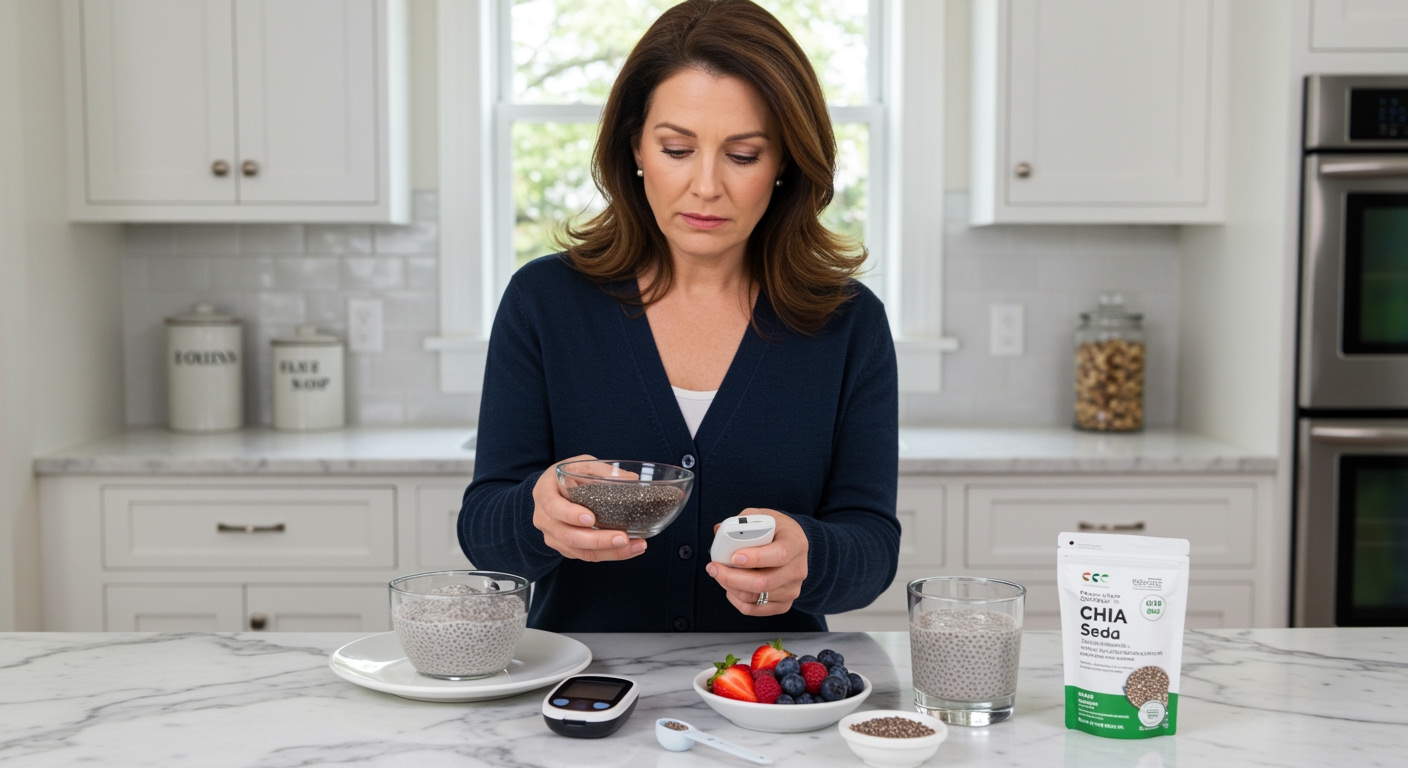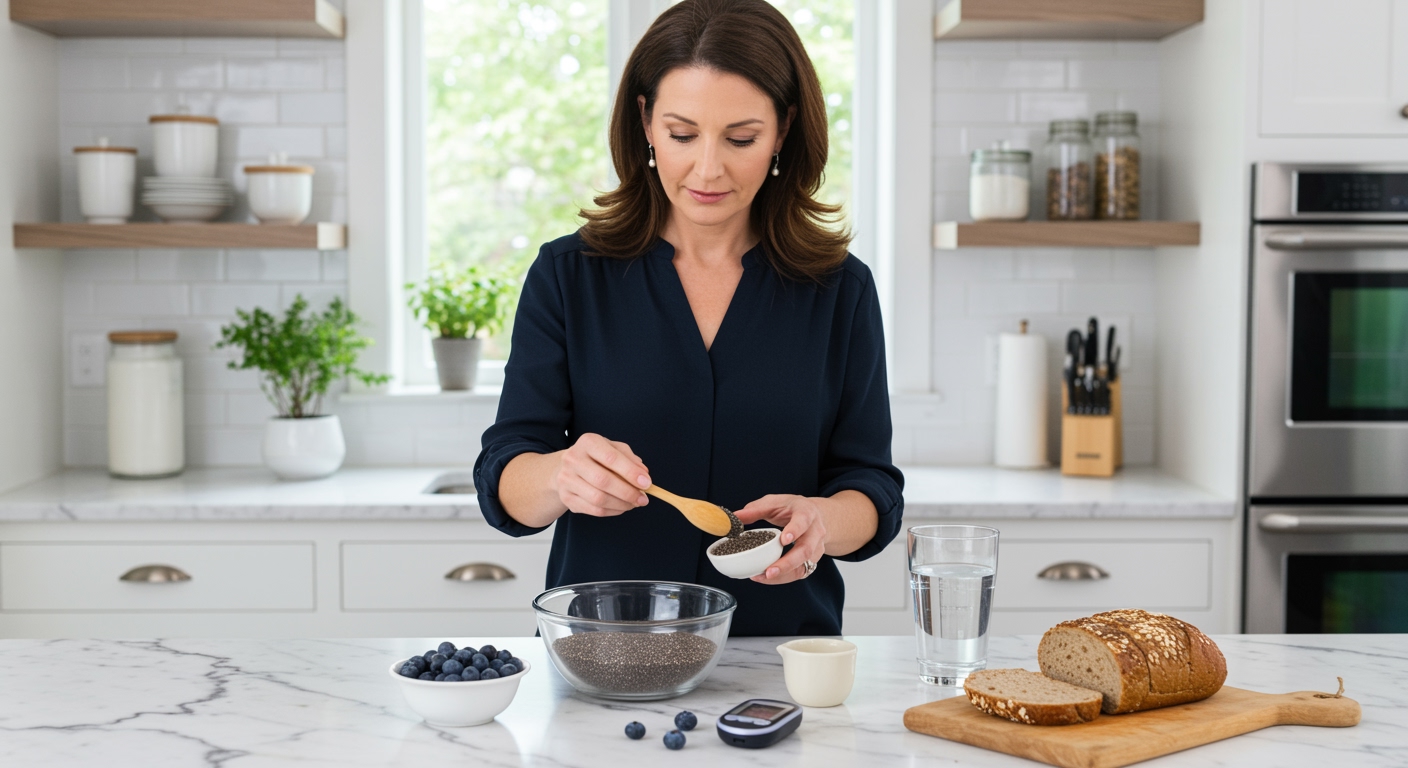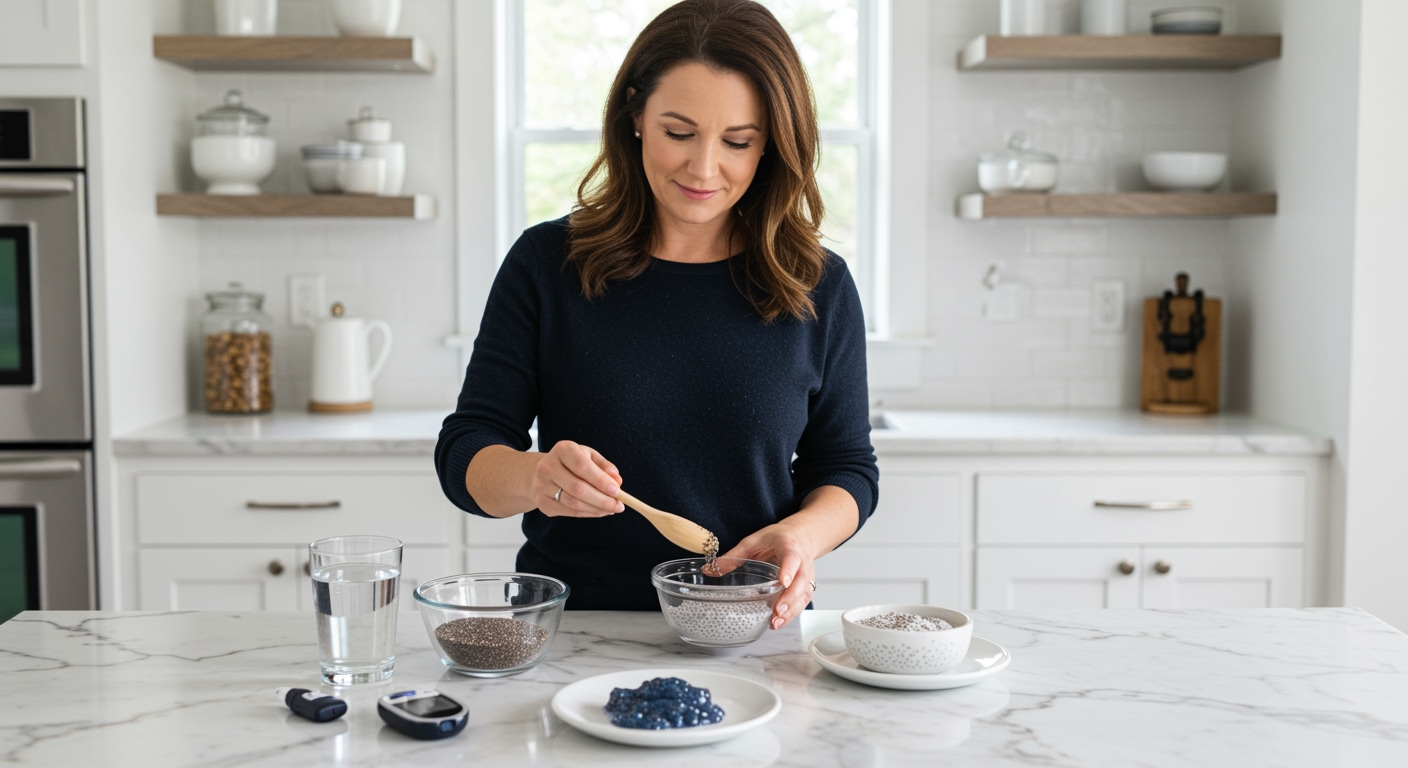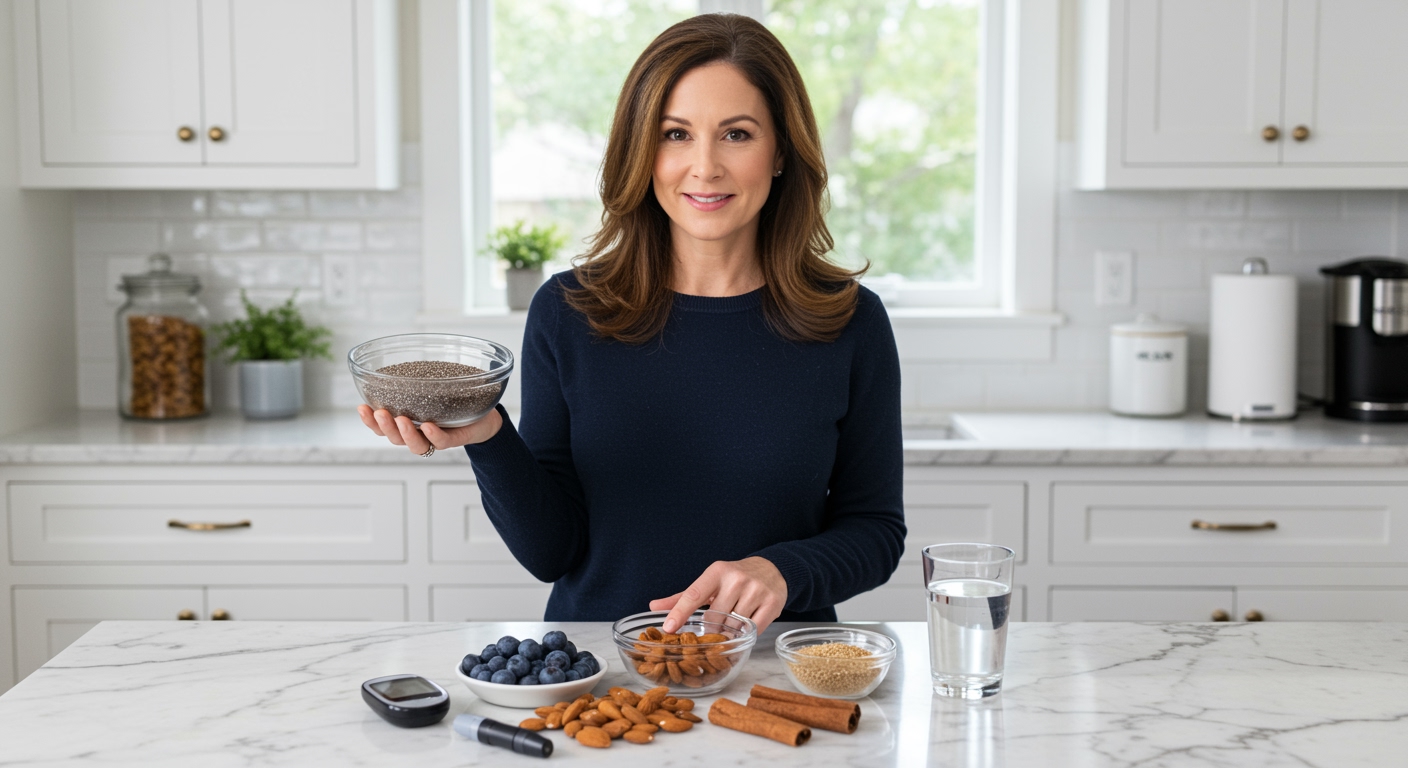✪ Key Takeaway: Chia seeds can reduce post-meal blood sugar spikes by up to 39% when consumed properly.
Introduction
Your doctor tells you to watch your carbs, yet here you are wondering if tiny chia seeds will spike your blood sugar.
You might be asking this question because you have heard conflicting information about seeds and diabetes, or perhaps someone told you that all seeds are safe for diabetics without explaining the science behind it.
Hi, I am Abdur, your nutrition coach and today I am going to explain exactly how chia seeds affect your blood sugar and whether they belong in your diabetes management plan.
What Makes Chia Seeds Different From Other Foods?
Chia seeds contain a unique combination of fiber, protein, and healthy fats that work together to slow down digestion.
When you eat chia seeds, they absorb water and form a gel-like substance in your stomach.
This gel formation creates a physical barrier that slows the absorption of glucose into your bloodstream.
The soluble fiber in chia seeds specifically targets the enzymes that break down carbohydrates in your small intestine.
Research shows that just two tablespoons of chia seeds contain 10 grams of fiber, which is about 40% of your daily fiber needs.
This high fiber content means your body processes the small amount of carbohydrates in chia seeds very slowly, preventing rapid blood sugar spikes.
✪ Fact: Chia seeds expand up to 12 times their original size when soaked in water.
How Do Chia Seeds Actually Lower Blood Sugar?
The magic happens through a process called gastric emptying delay.
When chia seeds form their gel coating, they slow down how quickly food moves from your stomach to your small intestine.
This slower movement gives your body more time to produce insulin and process glucose gradually instead of all at once.
Studies show that people with type 2 diabetes who ate chia seeds with their meals experienced a 39% reduction in post-meal blood sugar spikes compared to control groups.
The alpha-linolenic acid in chia seeds also improves insulin sensitivity, which means your cells respond better to insulin signals.
Additionally, the protein content in chia seeds triggers the release of hormones like GLP-1, which naturally helps regulate blood sugar levels.
This hormone also slows gastric emptying and increases feelings of fullness, creating a double benefit for diabetes management.
✪ Pro Tip: Soak chia seeds for at least 15 minutes before eating to maximize their blood sugar benefits.
What Is The Right Amount For Diabetics?
Most diabetes experts recommend starting with one tablespoon of chia seeds per day.
This amount provides about 5 grams of fiber and 2 grams of protein while contributing only 2 grams of net carbohydrates to your daily intake.
You can gradually increase to two tablespoons daily once your digestive system adapts to the increased fiber intake.
The timing of consumption matters significantly for blood sugar control.
Research indicates that consuming chia seeds 30 minutes before meals provides the best results for reducing post-meal glucose spikes.
However, you can also add them directly to meals, especially those containing higher amounts of carbohydrates.
Remember that chia seeds are calorie-dense, with about 140 calories per two tablespoons, so portion control remains important for overall diabetes management.
✪ Note: Always drink plenty of water when consuming chia seeds to prevent digestive discomfort.
Are There Any Risks For Diabetics?
Chia seeds are generally safe for people with diabetes, but a few considerations deserve your attention.
The most common issue is digestive discomfort when you consume too much too quickly.
Starting with large amounts can cause bloating, gas, or stomach cramps because your digestive system needs time to adjust to the increased fiber intake.
Some people taking blood-thinning medications should consult their doctor before adding chia seeds regularly, as the omega-3 fatty acids may enhance the effects of these medications.
If you take diabetes medications that lower blood sugar, monitor your levels more closely when first adding chia seeds to your diet.
The blood sugar lowering effects of chia seeds combined with your medications could potentially cause hypoglycemia if not properly managed.
Always choose organic, high-quality chia seeds and store them in a cool, dry place to maintain their nutritional benefits and prevent rancidity.
✪ Pro Tip: Test your blood sugar 2 hours after eating chia seeds to see how your body responds.
How Should You Prepare Chia Seeds For Best Results?
The preparation method significantly impacts how effectively chia seeds help manage your blood sugar.
Soaking chia seeds in water for 15-30 minutes before consumption allows them to form their beneficial gel coating before reaching your stomach.
This pre-soaking maximizes their ability to slow digestion and glucose absorption.
You can mix one tablespoon of chia seeds with three tablespoons of water and let them sit until they reach a pudding-like consistency.
Adding chia seeds to smoothies, yogurt, or oatmeal works well, but make sure these base foods are also diabetes-friendly and low in added sugars.
Ground chia seeds release their nutrients more readily but lose some of their gel-forming properties that help with blood sugar control.
For optimal diabetes management, stick with whole chia seeds that have been properly soaked rather than ground versions.
The Bottom Line
Chia seeds are not only safe for diabetics but can actively help improve blood sugar control when consumed properly.
The best health changes happen when you make small, consistent choices that compound over time, and adding chia seeds to your diabetes management plan represents exactly this type of smart, sustainable change.
I would love to hear about your experience with chia seeds or answer any questions you might have about incorporating them into your diabetes management routine, so please share your thoughts in the comments below.
References
At NutritionCrown, we use quality and credible sources to ensure our content is accurate and trustworthy. Below are the sources referenced in creating this article:





